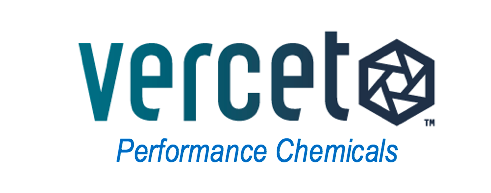While NatureWorks has already been working on this new business model of launching lactides-based performance chemicals a year back, the company finally made it official with a new division and product line called Vercet™, which aims to supply lactides, polyols, binder resins and chemical intermediates to companies that manufacture innovative coatings, adhesives, sealants and elastomers (CASE), toners and fine chemicals.
Vercet™ lactide-based chemistries offering will be more or less customized to provide solutions rather than just drop-ins, which in turn is expected to help customers better manage product cost at various points in their supply chain.

Some of the key performance benefits that NatureWorks pointed out on its press release are the customizable properties of Vercet polyols that reportedly provide excellent hardness, solvent resistance, and low color in polyurethanes. As components in polyester resins, Vercet lactides also can be used to create low volatile organic compound (VOC), solvent-borne alkyd resins for wood, and metal coatings that have excellent adhesion and impact resistance. Solvent-borne coatings and hotmelt adhesives using Vercet intermediate resins reportedly offer a tunable work life, more end-of-life options, excellent adhesion, as well as low dispensing temperatures for food packaging, paper, fiber board, and wood applications.
Vercet lactide-based products will have direct and indirect food contact approval as well as inherent health and environmental safety advantages when compared to traditional chemical building blocks.
One thing that NatureWorks pointed out during my interview with the company is that many of the feedstock in the CASE market is from the C4s and C5s chain, and prices for these chemicals have become volatile (think about benzene, toluene, butadiene, isoprene) due to the shift of petrochemical feedstock in North America to shale gas (less naphtha cracking).
I will be reporting more on this news including background on the lactides market on Tecnon OrbiChem’s June Biomaterials issue.
By the way, NatureWorks also recently announced that it has signed a contract to license Plaxica’s Optipure® chemical processing technology for the production of D-lactic acid. The license provides NatureWorks with a low-cost route to produce D-lactic acid, a building block for a further range of performance Ingeo™ PLA grades.
“After investigating multiple sourcing strategies for D-lactic acid, we are pleased to be licensing the Plaxica Optipure process. Access to competitively priced D-lactic acid is fundamental to NatureWorks’ strategy to broaden our Ingeo product offering.” – NatureWorks
While small volumes of D-lactic acid have previously been available from producers in Europe and Asia, they have until now been at a substantive price premium to the L-lactic acid which NatureWorks uses today. “D” and “L” lactic acid monomers are essentially identical yet “mirror images” of one another. In combination, the two can produce polymers that offer unique features such as higher melt point and melt strength. NatureWorks expects to begin sampling new Ingeo grades to customers in the second half of 2017.
The financial terms of the license were not disclosed. I will also be reporting more on this press release including background information on D-lactic acid. It’s going to be a very busy week!
FOLLOW ME ON THESE SPACE
Discussion
Comments are closed.